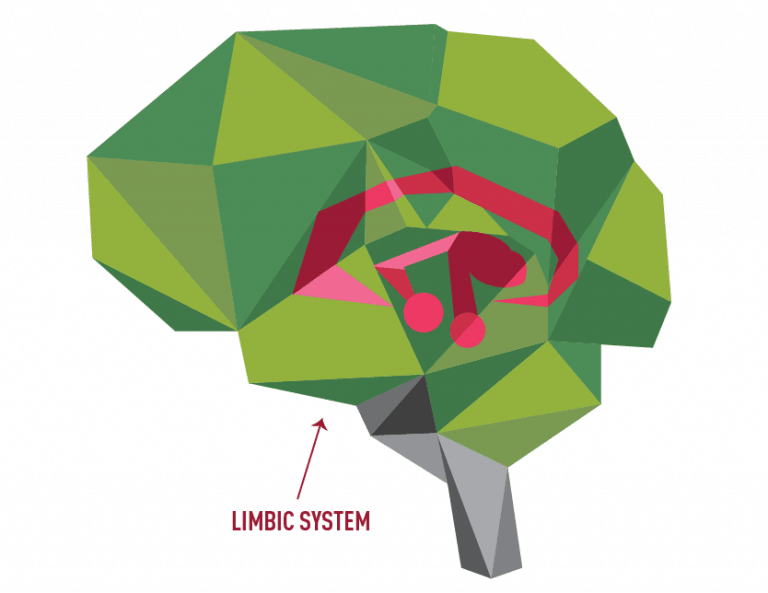Learning Brain Busters Part II: Dampen The Reactor

Your brain is not just an information processing, learning, and problem-solving machine; it is responsible for the tens of thousands of connections and activities that keep you alive. Every second of every day your brain is working toward that single focused goal.
Right now, your brain is hard at work making sure your blood is pumping through your veins at just the right rate, keeping your body temperature at just the right temperature and ensuring that you are getting the oxygen you need. But it is also scanning the world around you to determine what is helpful and what is dangerous to your survival and driving your reactions around what it finds.
Those knee-jerk reactions to the world around you are what we call emotions. And your ability to regulate those emotions by tuning in and making decisions is critical to your success in learning and in life.
Have you ever caught yourself saying something in anger that you would never say in any other situation? Or feeling so flustered that you cannot figure out what to do next?
You have experienced Limbic Take Over!
But why do those emotions so significantly affect your ability to think and learn?
The Emotional Limbic System
Believe it or not, this is all part of God’s incredible design. You see, it’s your Limbic System, or The Reactor, that warns you about danger. And it’s your Limbic System, that decides whether your response should be fight, flight, or freeze—a response that could be the key to your survival.
And when that emotional Limbic System flares, your Pre-Frontal Cortex (working memory or “The Thinker”) is immediately and proportionately affected--meaning it is compromised. Why? Because you may need to react in a split second and thinking could delay that response. During Limbic Take Over, you can no longer perform the same level of cognitive thinking that is possible when your emotions are in check. As a result, your performance decreases.
So what does this all have to do with homeschooling?
Well, let’s consider a few scenarios where emotions may impact learning.
1. Constant Struggle
Consider how you would feel if every time you went into work, you struggled, disappointed your boss or colleagues, or failed in some way. How excited would you be about getting into your car and heading to the office every day? How positive would you feel as you entered those doors? If you can already sense the heightened emotions, elevated blood pressure and racing heart rate, you can likely already feel the impact that would have on your ability to perform.This is what our kids experience when they are confronted with those difficult subjects that just seem to be impossible to learn. And those emotions make it even more difficult to conquer that struggle because The Reactor proportionately shuts down The Thinker.
2. Defeating Words
If you find yourself saying words like, “What’s wrong with you?” “Why can’t you get this?” or “You are not even trying!”, you are adding to the sense of defeat your kids are already feeling. When your words are negative and destructive, you force them into their Limbic System and learning takes a backseat.
3. Drama and/or Fear
In today’s world, thousands of kids head off to school every day only to face social drama and/or fear of physical or emotional harm. As a result, their Reactor stands on high alert all day long. In this state, effective learning fails and those kids quickly fall behind.
Sources of Limbic Take Over
There are countless sources of Limbic Take Over. We all have our own struggles, issues, and triggers that set off defeating emotions. But what can you do to help your child overcome those debilitating emotions?
The most powerful practice for conquering Limbic Take Over can be summed up in two words-- self-control. If you can help your kids learn to regulate their emotions, control their tongue and check their responses, you set them up for accomplishment. But how do we teach those skills?
5 Power-packed Strategies to Refocus The Reactor

1. Name It
When you see someone’s emotions starting to flare, teach them to overcome The Reactor by engaging The Thinker. One quick way to do this is to have them immediately name the emotion they feel. You are not asking them to tell all of the things that set off that emotion, you are simply asking them to state, “I am feeling…”. Just that simple statement forces them to rely on The Thinker and dampen their emotional response. (Warning: Do not move into a full explanation of what happened and why they are feeling that way as that simply feeds the emotional response. Just have them name the emotion then move on.)
2. Make a Statement
One dad shared this strategy after attending one of my training workshops. His kids were a bit younger and could not often identify their emotions. So instead he asked them to clasp their hands together and repeat after him... “I will be self-controlled.” This strategy actually works in two ways—it forces them to use their brain to do the physical act of clasping hands (thus shifting attention away from their emotions) AND the statement engages The Thinker, which automatically diffused The Reactor. The parent never understood the science behind it but was always amazed at how well it worked.
3. Do a Simple Math Exercise
The goal in both suggestions above is to engage The Thinker. Therefore, any activity that requires conscious thought can be an effective way to dampen The Reactor and get back on track. Doing simple addition, counting, reciting a verse, or even picturing a favorite activity or place provides that avenue to reengage The Thinker.
4. Teach at a level and in the way your child learns best
When your kids struggle with a particular subject there is wonderful opportunity for growth. This starts with knowing how they learn best and where they are academically. By teaching them subjects according to how their brain naturally retains information, those tough subjects can be presented in a motivating and understandable way. By approaching learning this way (ie their way) you appeal to their specific ‘Thinker.’ Interested to know more about how your child learns? Take Bridgeway Academy’s Learning Style Assessment here.
5. Reappraise
Our brains naturally go to the negative (a topic of my next post in this series). We do this as a part of basic survival. If we see the bad we can sidestep it more effectively. However, we aren’t being stalked by a lion right now so we need to interrupt that spiral. Even though it is easy to focus on everything going wrong, our ability to reappraise a situation and find the potential positives quickly is key to overcoming Limbic Take Over. Once again we can quiet that threat response and allow The Thinker to re-engage.
I realize that this training takes time, effort and piles of patience. But I encourage you to avoid the temptation for fast-paced parenting and take the time to help your kids develop these skills essential to success in school and in life.
And that conscientious parenting is a powerful tool for helping your kids develop their Filter, another incredibly important part of the brain that you have a significant role in developing. My next post in this series provides some insight into this filter and a few easy strategies pointing that filter to the right place.







When is the next one coming out!? Excitedly awaiting another!